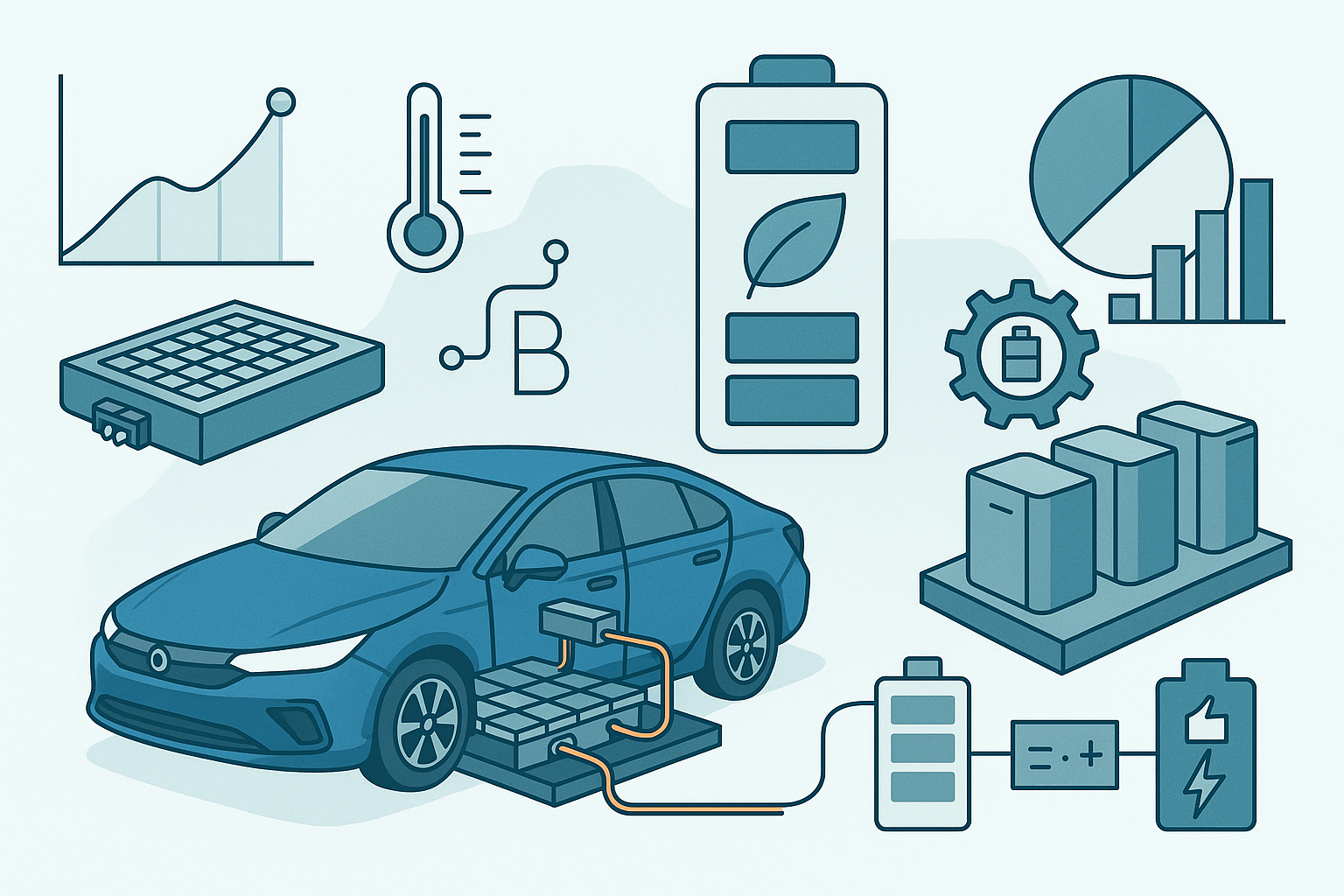Electric vehicle batteries

What is Electric Vehicle Batteries?
EV batteries (typically lithium-ion) store energy that drives the motor. Packs combine many cells with a Battery Management System (BMS) to deliver safe, efficient power.
Why Electric Vehicle Batteries Matter
- Optimize Range: Energy density and health determine how far you can drive.
- Lower Costs: Efficient charging and care reduce replacement needs.
- Reliability: Thermal control and cell balancing improve uptime.
- Sustainability: Longer life cycles reduce material and carbon footprints.
How It Works
EV battery systems analyze:
- Cell Metrics: Voltage, temperature, internal resistance.
- Pack Health: State of charge (SOC), state of health (SOH), imbalance.
- Thermal Signals: Cooling or heating needs, ambient weather.
- Usage Patterns: Driving style, charge habits, depth of discharge.
Control systems manage:
- Thermal conditioning.
- Charge profiles and protections.
- Safety shutdowns and balancing.
Key Technologies
- BMS and cell balancing.
- Liquid or air thermal management.
- High-nickel and LFP chemistries.
- Pack modularity.
- Battery analytics.
Applications
- Passenger EVs and two-wheelers.
- Commercial vans and buses.
- Energy storage systems.
- Battery swapping.
Benefits
- Better range and performance.
- Longer lifespan.
- Lower total cost of ownership.
- Safer operation.
Use Cases
- Daily commuters optimizing home charging.
- Fleets maximizing uptime.
- Fast-charging corridors with pre-conditioning.
- Stationary storage reuse.
Callout: Battery care is range care. Charge and condition smartly to drive farther, longer.




